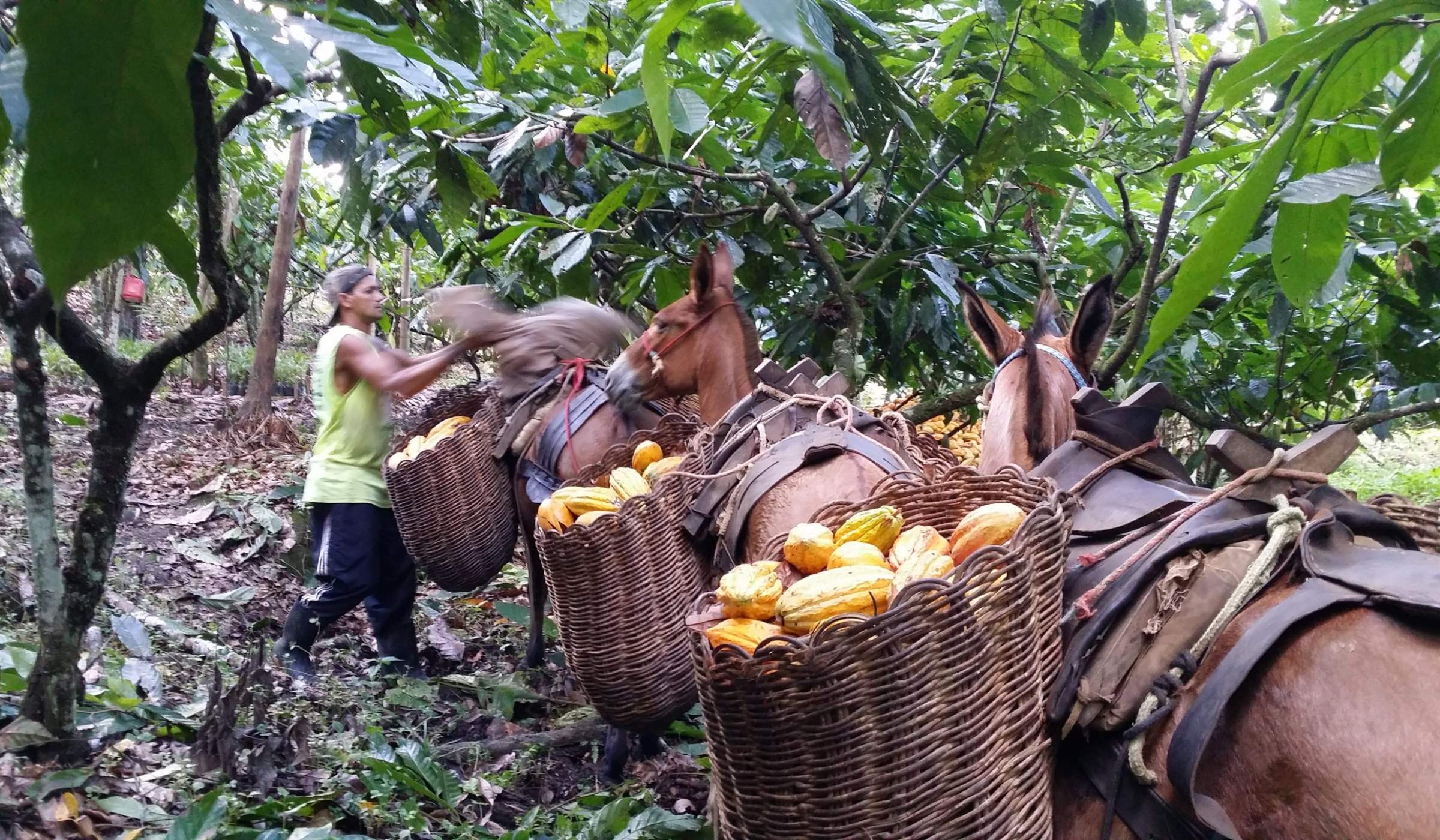
When you look at what Henrique Souza has achieved it shows the promise of cocoa in Brazil.
The farmer in Bahia State grows cocoa on his 20 hectares of land by planting it with the tropical fruits açaí and jackfruit, as well as with nut trees. This agroforestry approach, widespread in Brazil, requires less work or fertilizer, and helps with climate change by storing carbon dioxide. Souza notes his farm is more profitable and commands a premium price for his high-quality and organic cocoa.
It is with the success of such farmers in mind that CocoaAction Brasil launched our Cacau 2030 Project - structuring actions for the sustainable development of the cocoa sector in Brazil - in May 2021, with 200 participants from all Brazilian cocoa regions and a global audience. Aligned with the 2030 UN development goals, the Cacau 2030 Project will focus on providing technical assistance to cocoa farmers with trained experts, strengthening of cooperatives, improving access to rural credit, advancing decent labor, stopping deforestation and promoting reforestation. It will benefit more than 700 cocoa farmers and 400 technicians – who will provide technical assistance – in Bahia, Pará, and Espírito Santo states, from 2021 to 2024.
Our first aim is to focus on a sustainable increase in cocoa productivity. Why? Because it is a vital first step: without raised farmer income, the rest of our agenda will not advance. And the demand for this additional cocoa is there: an agricultural powerhouse and historic cocoa producer, Brazil has unused grinding capacities, a strong domestic market for chocolate, and currently imports around 20% of its cocoa each year. This cocoa could be grown in Brazil.
We know that small changes on farms can lead to great advances in cocoa productivity in Bahia, Pará, Espírito Santo and other cocoa producing areas. Productivity is currently especially low in Bahia, with 180 kilograms per hectare (kg/ha) in some areas. The average productivity in Brazil is 300 kg/ha and could easily be improved across all regions. On top of productivity, cocoa farmers have the potential to increase cocoa quality by adopting good agricultural practices. Cocoa generates more profit for farmers than many Brazilian crops, so these improvements in productivity should translate into improved livelihoods.
The Cacau 2030 Project is not just about productivity. It will also advance the agenda of decent labor and the improvement of living conditions in the cocoa sector. The project will develop, in partnership with the InPACTO Institute, an index to identify social vulnerabilities in the cocoa sector, enabling prevention and combating degrading working conditions and child labor. Training, knowledge sharing and stakeholder engagement will also support improvements in promoting decent labor.
The Cacau 2030 Project also aims to enhance the enabling environment for sustainable cocoa by stimulating partnerships and initiatives strengthening the sector. This enabling environment exists in Brazil in other successful supply chains (coffee, soybean, corn, orange, and sugar cane), but it is inadequately developed in cocoa. For example, around USD 50 billion per year in credit is available to Brazilian farmers every year, but only USD 5 million, or 0.01%, reaches cocoa growers.
The lack of a suitable enabling environment is lived every day by Keylah Borges. She farms five hectares in Brazil’s Pará state and has used cocoa to recover degraded pasture lands. She sees technical assistance and extension services as essential and worries about poor logistics and low productivity. We need to bring a stronger enabling environment to help farmers such as Borges.
The Cacau 2030 Project has assembled an impressive list of partners that includes the International Labour Organization, federal and state governments, municipalities, research institutes, industry associations, cocoa and chocolate companies, and farmer organizations.
With better organization and collective action, Brazil’s cocoa sector will become an important source of sustainable cocoa.
